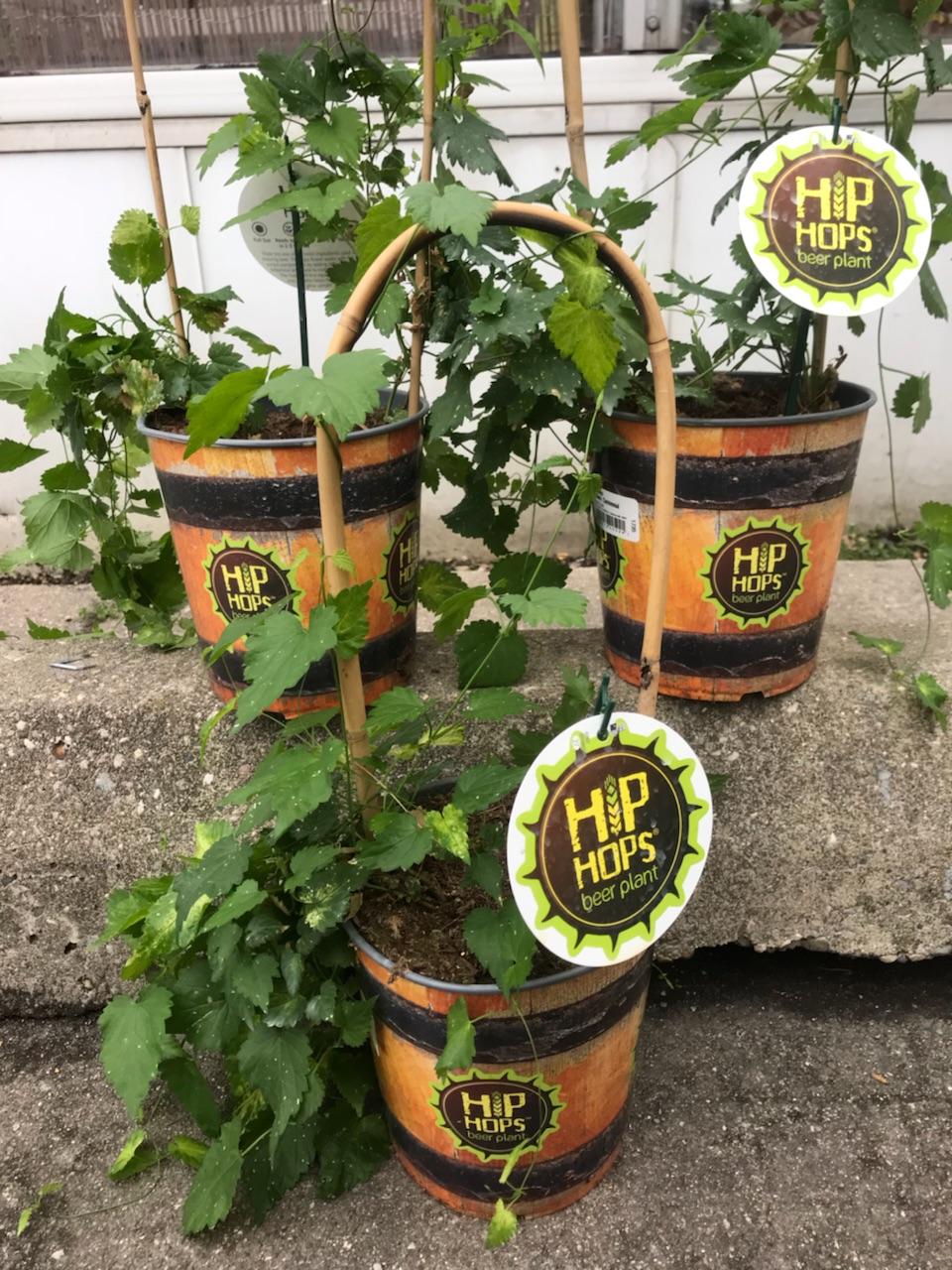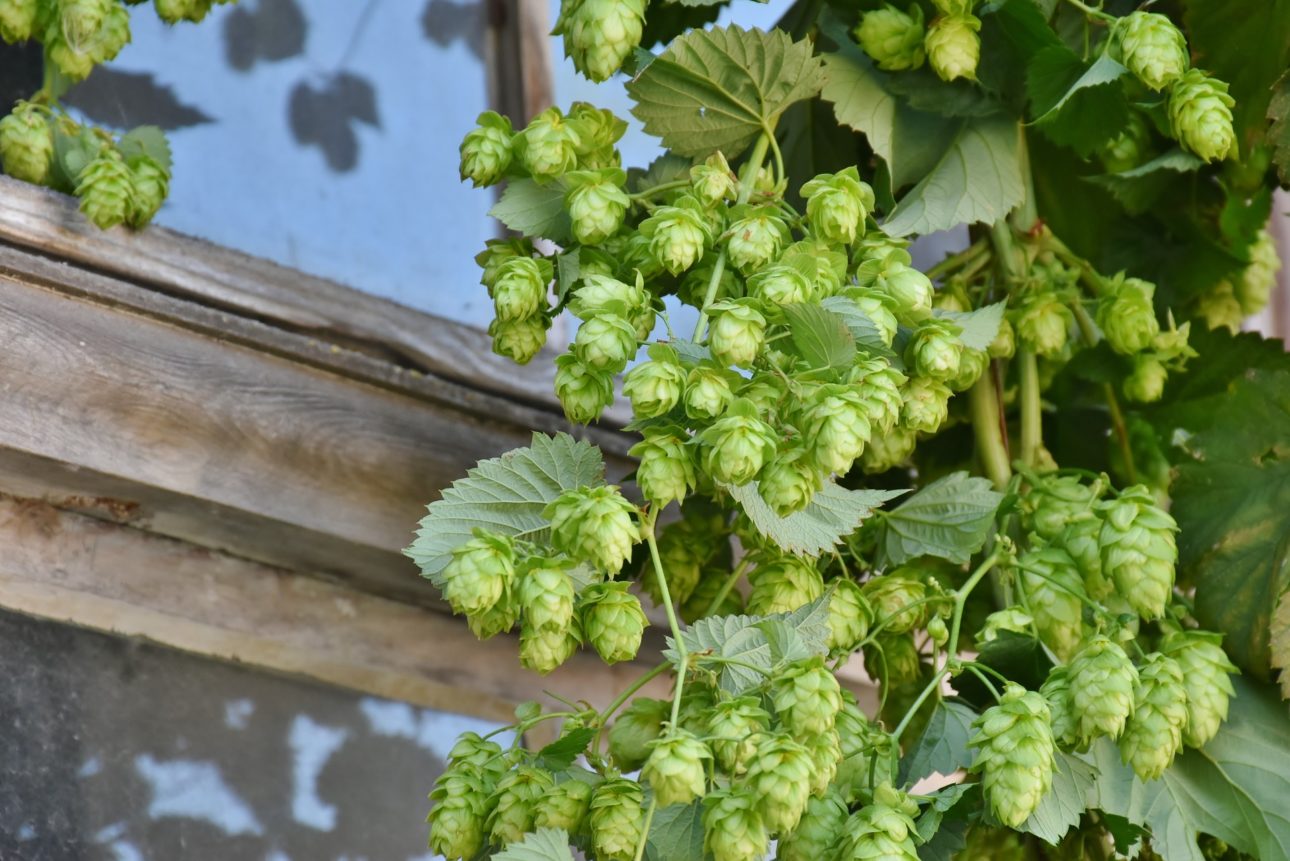 Hops are a very hardy perennial vine. They are easy to grow, prefer at least 8 hours of sun per day and require good drainage. New shoots grow from the roots each year, are very vigorous, and will grow 20 to 25 feet in one season. Vines need a strong, vertical trellis. Used for making bittering beers, medicinal applications, privacy screening and for decorations. Produces fragrant greenish papery cone-like flowers after two seasons.
Hops are a very hardy perennial vine. They are easy to grow, prefer at least 8 hours of sun per day and require good drainage. New shoots grow from the roots each year, are very vigorous, and will grow 20 to 25 feet in one season. Vines need a strong, vertical trellis. Used for making bittering beers, medicinal applications, privacy screening and for decorations. Produces fragrant greenish papery cone-like flowers after two seasons.
Beer wouldn’t be beer without hops – hops provide the balance, and are the signature in many styles. The bitterness contributed by hops balances the sweetness of the malt sugars and provides a refreshing finish. With the increasing interest in home brewing, growing hops has become more and more popular, but even a teetotaler can appreciate their beautiful leaves and distinct fragrance.
Hops grow as a vine, so you’ll need some kind of support system, like a fence, arbor, trellis, pergola or wall. Make sure you have plenty of room. Hops grow big and they grow fast. Many hop vines can shoot up to 30 feet in no time. Choose a sunny location with protection from strong winds. Hops grow best in well-drained, rich soil. Be sure to amend the soil with an organic compost when you’re planting.
Hops like moisture, especially in their first year. Check them regularly to keep the soil moist, but not soaking. Mulching around the plants can also help retain moisture. Hops produce lots of shoots, so prune them aggressively. Choose three or four of the healthiest vines to cultivate and prune the rest to the ground. As for fertilizer, feed your hops first with a nitrogen rich plant food early in the season, then with a bloom booster mix later in the summer. We recommend feeding with Espoma GardenTone in May and Espoma FlowerTone in June of July.
The vines will produce several harvests throughout the season. To tell if hops are ready to harvest, give the cones a little squeeze. If they feel dry and papery and spring back into shape, they’re ready to pick. If they feel soft and squeeze flat, they’re still too moist and need to dry out on the vine a little longer. Ripe hops will also have that unmistakable aroma that beer-drinkers love. Immature hops will tend to have a grassier smell. Once you harvest the hop cones, dry them out for about three days. Then you can use them right away or seal them in a freezer bag and keep them in the freezer.


